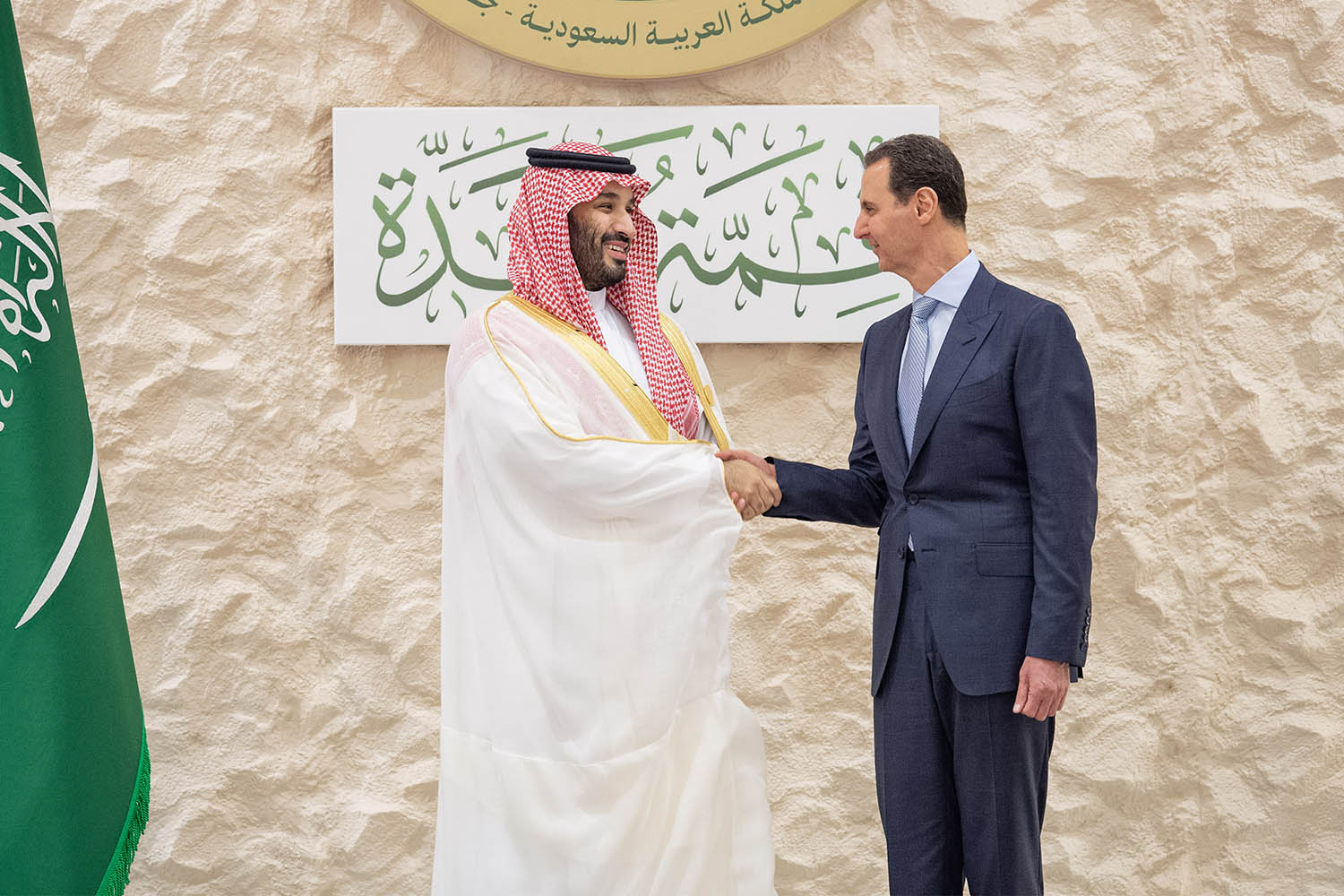
Syria’s dictator is being embraced by his neighbours after more than a decade of isolation. Why?
- Sinan Ogan, who came third in Turkey’s presidential election, said he would back Recep Tayyip Erdogan in the run-off this weekend.
- The widow of Nelson Mandela said the Taliban’s repression of Afghan women was a form of apartheid.
- Rayyanah Barnawi, a Saudi breast cancer researcher, became the first female Arab astronaut.
Last week, Bashar al-Assad was invited to the Arab League in Jeddah for the first time since he was expelled 12 years ago. Syria’s president kissed the Saudi Arabian crown prince Mohammed bin Salman (MBS) gently on the cheeks, grinned with Egypt’s Abdel Fattah el-Sisi and stood for a photo with the leaders of 400 million people.
So what? Slowly but surely, the butcher of Syria is coming in from the cold.
It’s taken a long time. The road to rehabilitation has wound past cities barrel-bombed to oblivion and the bodies of more than half a million people, many of them children frothing at the mouth from sarin gas. But Assad has outlasted Barack Obama’s “red line”, the Islamic State and all the armed groups the Gulf States dared to send his way.
Assad is set to be a regular fixture on the international circuit. The UAE has already invited him to the Dubai Cop28 to discuss climate change in November, in a move Amnesty International has described as “part of an insidious normalisation process designed to maintain impunity for leaders across the region.”
Moving on up. Officials in the Gulf monarchies conspired for years to get rid of Assad, supplying guns and money to almost anyone with anti-Assad credentials. But after interventions from Hezbollah, Iran and Russia, it’s clear the Syrian regime is here to stay.
Now the leading Arab states want to
- send 5.5 million Syrian refugees home to relieve the strain they’ve been imposing since 2011 on countries like Lebanon, Jordan and Turkey;
- contain the $57 billion Captagon trade, which fuels addiction from Riyadh to Beirut with tens of millions of Syrian state-manufactured amphetamine pills; and
- undermine Syria’s long-standing alignment with Iran.
Holding Assad’s regime accountable doesn’t seem to be a priority for the MBS regime, which may not be surprising given its record in Yemen and the murder of the journalist Jamal Khashoggi.
House of Saud. The US and its Western allies have limited influence on or interest in Syria anymore, creating a power vacuum being filled by regional players.
- Much of this push for rapprochement is being led by MBS and his allies in the UAE, who want to stop foreign powers meddling in the region.
- Assad wants to remove heavy Western sanctions imposed by Brussels and Washington, but to have any hope of doing this he needs the help of the Arab nations that once tried to dethrone him.
- He has expertly created problems for his neighbours, like the drugs trafficking crisis on the Jordanian border, which they need him to solve.
Fear and loathing. Assad’s creeping rehabilitation has caused disgust across much of Syria.
“[We] support any effort that contributes to… the establishment of a transitional government, the prosecution of the Assad regime, and the liberation of detainees,” Raed Al Saleh, director of the White Helmets, a volunteer group which has been pulling victims out of the rubble in Syria for the last decade, told Tortoise.
“Any alternative course of action that fails to align with the Syrian people’s aspirations or contributes to the flotation of the Syrian regime, its security apparatus, and its affiliated militias finds unanimous rejection among all Syrians who fought for their rights and freedom, including the victims and those who have gone missing in the regime’s prisons and cellars.”
Not leaving. After decades of failed interventions in the Middle East and as tensions with China reach boiling point, America’s focus has undeniably shifted towards the Pacific.
But the US is not ceding the field just yet. Look no further than the sprawling 43-acre, $1 billion US embassy being constructed in the hills above Beirut. The fortress looks more like a statement of intent than a diplomatic white flag.
